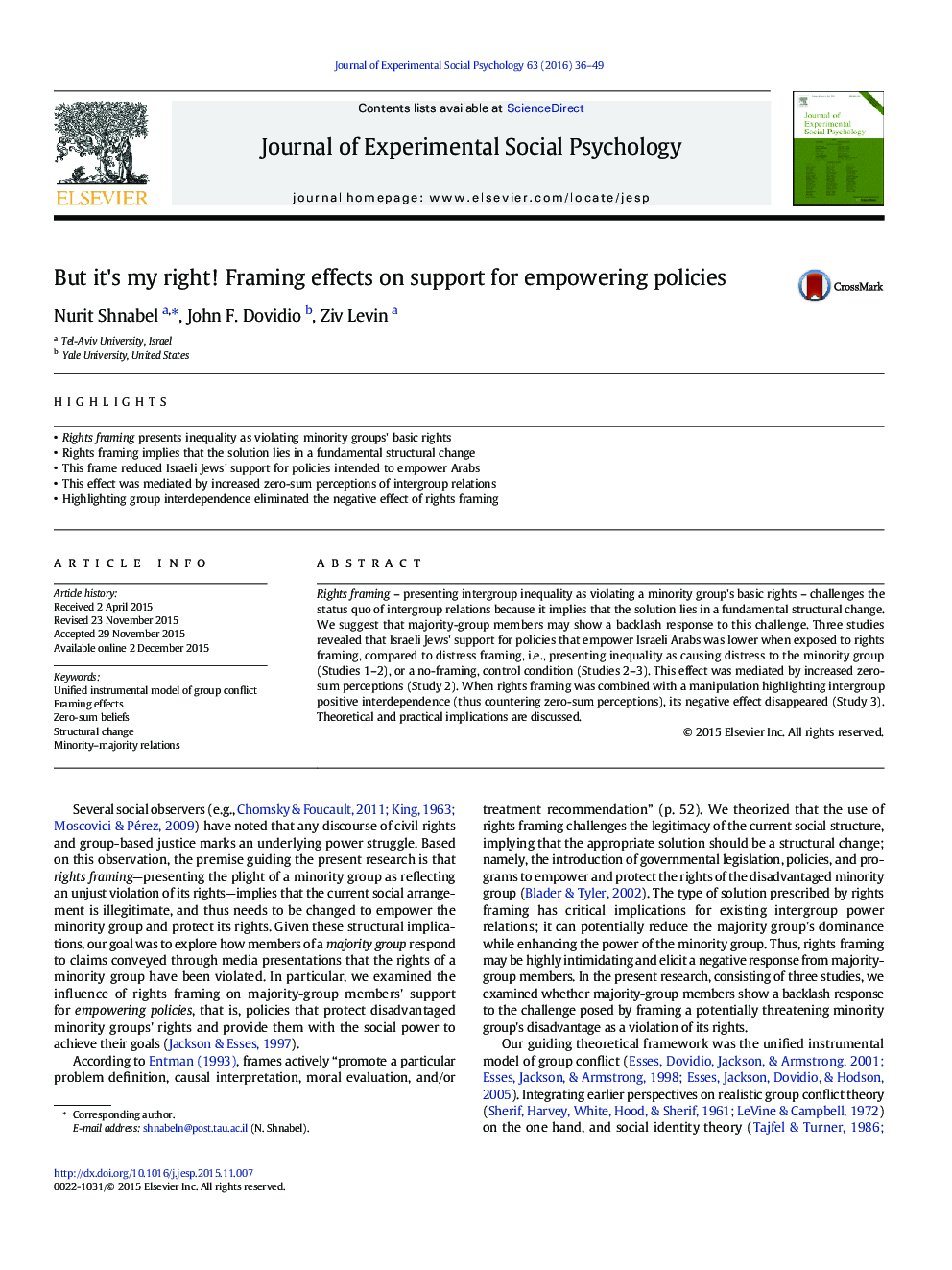| Article ID | Journal | Published Year | Pages | File Type |
|---|---|---|---|---|
| 7324430 | Journal of Experimental Social Psychology | 2016 | 14 Pages |
Abstract
Rights framing - presenting intergroup inequality as violating a minority group's basic rights - challenges the status quo of intergroup relations because it implies that the solution lies in a fundamental structural change. We suggest that majority-group members may show a backlash response to this challenge. Three studies revealed that Israeli Jews' support for policies that empower Israeli Arabs was lower when exposed to rights framing, compared to distress framing, i.e., presenting inequality as causing distress to the minority group (Studies 1-2), or a no-framing, control condition (Studies 2-3). This effect was mediated by increased zero-sum perceptions (Study 2). When rights framing was combined with a manipulation highlighting intergroup positive interdependence (thus countering zero-sum perceptions), its negative effect disappeared (Study 3). Theoretical and practical implications are discussed.
Keywords
Related Topics
Life Sciences
Neuroscience
Behavioral Neuroscience
Authors
Nurit Shnabel, John F. Dovidio, Ziv Levin,
